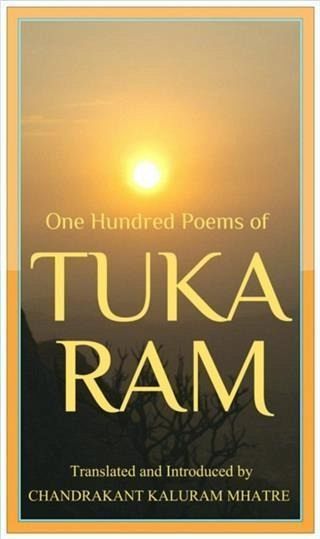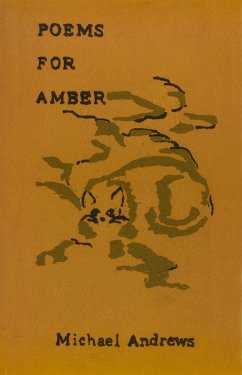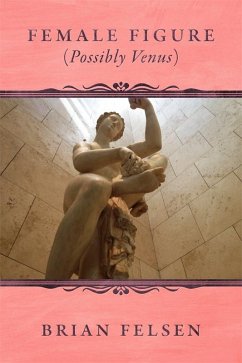
One Hundred Poems of Tukaram (eBook, ePUB)

PAYBACK Punkte
3 °P sammeln!
Tukaram was a sixteenth century Indian poet who challenged the norms of the day, whether literary, social or religious in his poems that not only energized a decaying society but also influenced the centuries to come. Tukaram's poetry hold its rejuvenating powers even in the turbulent times of our own twenty-first century. One Hundred Poems of Tukaram is a translation of selected poems of this visionary poet who makes his reader see every aspect of life in a new light, enabling them to rethink the whole world in more positive terms. Tukaram's reputation as one of the greatest poets born in Ind...
Tukaram was a sixteenth century Indian poet who challenged the norms of the day, whether literary, social or religious in his poems that not only energized a decaying society but also influenced the centuries to come. Tukaram's poetry hold its rejuvenating powers even in the turbulent times of our own twenty-first century. One Hundred Poems of Tukaram is a translation of selected poems of this visionary poet who makes his reader see every aspect of life in a new light, enabling them to rethink the whole world in more positive terms. Tukaram's reputation as one of the greatest poets born in India resides on his four thousand or so extant poems which he composed in Marathi, his mother tongue. Unlike most of the poets of the seventeenth century, Tukaram did not write in highly Sanskitised Marathi, instead he chose the colloquial language spoken by the common-most people of his times. This has given a distinct vigour to his compositions which appeal straight to the heart of his readers. By temperament, Tukaram is as candid and as forthright as imaginable and does not hesitate to write about anything under the sun nor does he consider anything too holy to be left untouched. This makes his poems penetratingly consistent in taking aim at the very core of the questions grappling human existence. Though he wrote almost four hundred years ago, in a very different social milieu than today's globalised and digitized world, somehow he seems to be dealing with and overcoming exactly the same dilemmas faced by the human populace in the twenty first century the world over. This continuum of human condition is what drew me more and more to the poems of Tukaram. Despite the fact that Tukaram was a widely revered saint, arguably the greatest of his times, his poetry is not conventionally devotional. Of course, the predominant theme in his poems is that of spirituality. Yet, even at a cursory reading, one understands Tukaram's poems to be markedly different from other devotional/spiritual poems. The reason is Tukaram's honesty when it comes to self-expression. He does not only harp upon his 'oneness' with the Lord or the bliss attained thereof or the knowledge obtained thereby, but he goes on to expressing in his poems his entire spiritual and worldly journey with all its dramatic ups and downs - with 'downs' seemingly outnumbering 'ups'. Resultantly, in his poems we do not come across some spiritually enlightened 'being' talking down to us from his high pedestal but someone from amongst us who has started from the bottom and knows exactly how steep the climb is. Therefore, while reading Tukaram, one cannot help but feel that it is not just the poet's journey that is unfolding; it is the journey of each one of us. As if Tukaram holds our hand and takes us on that path leading to the ultimate goal of human life. Thus Tukaram's poetry does not remain the expression of one individual but of the entire humanity existent in all places at all times! While reading Tukaram, one gets an eerie feeling that Tukaram is a contemporary poet, that the content of his poems is of the present times, that he writes for the current generations. Thus we come across in his poems all that angst that we today experience on seeing innocent people suffering at the hands of the terrorists, when he exclaims: "Eyes cannot bear to see Such is the devastation Pains of others grieve My heart" It hardly matters that Tukaram is writing in this poem about the horrific droughts of his times that wiped out an entire generation; this becomes an expression of my heart writhing in pain seeing the images of the thousands of Nigerians killed in the Boko Haram attack. It hardly matters that Tukaram is talking about a nature-inflicted calamity, while our miseries today are self-inflicted. Tukaram's words catch hold of our aching nerve like no contemporary of ours can.
Dieser Download kann aus rechtlichen Gründen nur mit Rechnungsadresse in A, B, BG, CY, CZ, D, DK, EW, E, FIN, F, GR, HR, H, IRL, I, LT, L, LR, M, NL, PL, P, R, S, SLO, SK ausgeliefert werden.













